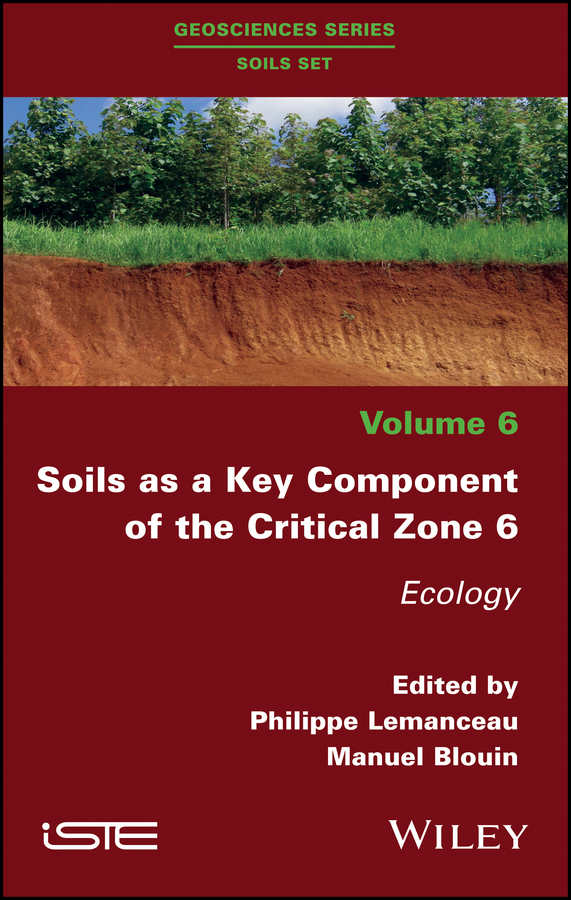Электронная книга: Philippe Lemanceau «Soils as a Key Component of the Critical Zone 6. Ecology»

|
Soils are environments where a myriad of different organisms evolve, determining a series of functions which translate into ecosystem services that are essential for humanity. Improving our understanding of these organisms, their biodiversity and their interactions with each other, as well as with the environment, represents a major challenge. Soil ecology has its roots in natural history. The ecological approach focused on soils is notable for integrating, at least partially, the contributions of soil sciences (physics, chemistry, biochemistry). By renewing methods of observation and analysis (especially molecular ones) and through the development of experimental approaches and modeling, an ecology connected with other soil-based disciplines emerges and begins to influence aboveground ecology. Soils as a Key Component of the Critical Zone 6 presents an updated vision of knowledge and research in soil ecology as a complex system from the best French specialists. Издательство: "John Wiley&Sons Limited (USD)"
ISBN: 9781119573128 электронная книга Купить за 11238.83 руб и скачать на Litres |
Другие книги схожей тематики:
| Автор | Книга | Описание | Год | Цена | Тип книги |
|---|
См. также в других словарях:
Eutrophication — The eutrophication of the Potomac River is evident from its bright green water, caused by a dense bloom of cyanobacteria. Eutrophication (Greek: eutrophia healthy, adequate nutrition, development; German: Eutrophie) or more precisely… … Wikipedia
Life Sciences — ▪ 2009 Introduction Zoology In 2008 several zoological studies provided new insights into how species life history traits (such as the timing of reproduction or the length of life of adult individuals) are derived in part as responses to… … Universalium
France — /frans, frahns/; Fr. /frddahonns/, n. 1. Anatole /ann nann tawl /, (Jacques Anatole Thibault), 1844 1924, French novelist and essayist: Nobel prize 1921. 2. a republic in W Europe. 58,470,421; 212,736 sq. mi. (550,985 sq. km). Cap.: Paris. 3.… … Universalium
United States — a republic in the N Western Hemisphere comprising 48 conterminous states, the District of Columbia, and Alaska in North America, and Hawaii in the N Pacific. 267,954,767; conterminous United States, 3,022,387 sq. mi. (7,827,982 sq. km); with… … Universalium
china — /chuy neuh/, n. 1. a translucent ceramic material, biscuit fired at a high temperature, its glaze fired at a low temperature. 2. any porcelain ware. 3. plates, cups, saucers, etc., collectively. 4. figurines made of porcelain or ceramic material … Universalium
China — /chuy neuh/, n. 1. People s Republic of, a country in E Asia. 1,221,591,778; 3,691,502 sq. mi. (9,560,990 sq. km). Cap.: Beijing. 2. Republic of. Also called Nationalist China. a republic consisting mainly of the island of Taiwan off the SE coast … Universalium
